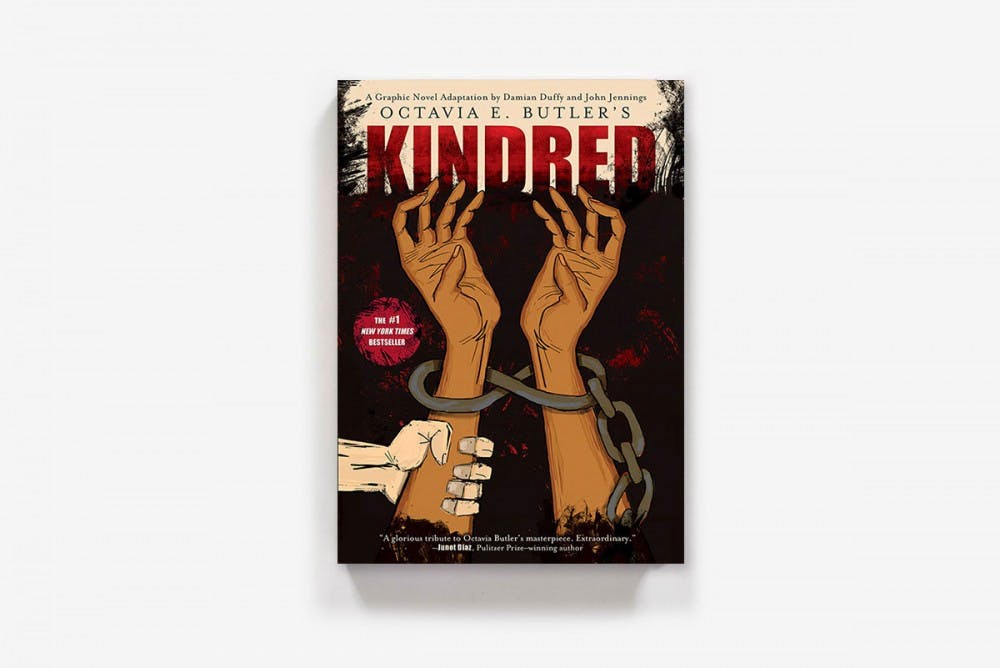Graphic artists John Jennings and Damian Duffy are showcasing their unique take on a classic story this week at USC.
USC's African American Studies Program, in coordination with the Department of English Language and Literature, invited Jennings and Duffy to USC to discuss their adaptation of the science fiction slave narrative "Kindred." The event will be held 7-10 p.m. Monday in Close-Hipp 002.
Written by Octavia E. Butler, "Kindred" was first published in 1979. Since then, the novel has played an important role in studying African-American history through the lens of literature.
Professor Qiana Whitted, a member of the African American Studies and English departments, is responsible for bringing Jennings and Duffy to campus. Whitted believes students and faculty would benefit from the opportunity to meet the duo and learn from their creative process. To her, the artistic choices in the novel are particularly responsible for developing an understanding of difficult topics.
"Jennings and Duffy's graphic novel adaptation of Butler's story reminds us that although we can never know what it was like to be enslaved, we as Americans should never stop reflecting on lessons of this painful past," she said.
The artists have worked as the group "J2D2" for 13 years and are both college faculty.
Jennings, a professor of media and cultural studies at the University of California at Riverside, focuses mostly on visual culture studies which for him includes comics, film, illustrated work and television.
He believes “Kindred” portrays how America hasn’t progressed as far as we think it has. He used contemporary examples, such as the riots in Charlottesville and the Black Lives Matter movement, to show how even in 2017 it can feel like we’re still in the '60s.
“It gives us an allegory for us to hang some of these ideas upon. And that’s why I think it’s so beloved as a manuscript and as a story,” Jennings said.
Duffy, the other half of the team, is a lecturer at the University of Illinois School of Information Science, cartoonist, writer and graphic novelist.
He said that the opportunity to make the graphic novel was not initially at the forefront of their minds; they almost picked up a completely different project that ended up falling through before "Kindred" landed in their laps. But Duffy has been a fan of the original novel since he was an undergraduate student.
"The brilliance with which it's written, the ideas in it around race and gender were all just kind of [relevant] for me at the time," Duffy said.
He feels that the novel provides an honest, complex examination of America's history with regards to discrimination, and that Butler's fictional development is powerful in ways that non-fiction history books may not be.
However, it is not solely the story that is impactful to an audience. Jennings, Duffy and Whitted agree that the visual nature of the adaptation holds power too. The talk will center around the difficulty of turning a well-known story into a graphic art adaptation and the influence the novel has had.
“We focus on process so much is because capitalism hides process, right?" Jennings said. "And so, I think students — and not just students, but people in our country — are used to just consuming things without thinking about the labor that goes into making something like this."

